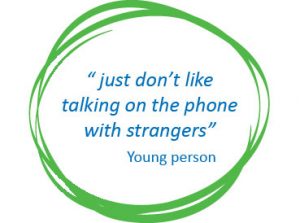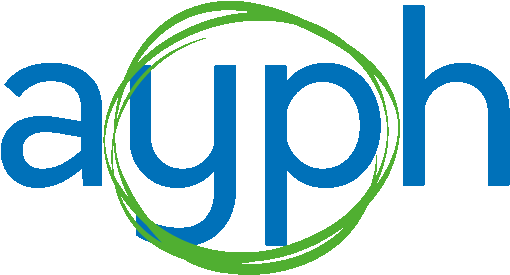Interest is growing in on-line methods for making contact with the GP. It’s critical we understand how this works specifically for young people. AYPH’s Jeremy Sachs shares the main findings from our recent work for NHS England and NHS Improvement on young people’s perspectives on digital access to primary care.
Using on-line methods to get in touch with the GP potentially improves the efficiency of services as well as increasing access to care. However, this may not be the experience of all who try and access primary care and could raise some particular challenges for some groups, including young people. Young people sometimes report lower satisfaction than other ages when accessing primary care. When it comes to changing things, hearing directly from young people about their experiences is critical to getting it right.
We were interested in whether there was any evidence available already about what young people thought of digital access to primary care, and also to consult with a new group of young people about what they thought in the current situation, post-pandemic. By digital access, we mean patients have the choice to use an online route to get advice or make an appointment, usually through the practice website or NHS app. This would be in addition to existing telephone and in-person ways of making contact.
We have published two reports – our scoping review of the evidence, and a summary of the messages from our engagement with a panel of young people. The scoping review revealed that there was very little directly relevant research literature on youth perspectives on digital access routes. However, it is clear that young people want choice in how they communicate with primary care services. They need to be confident about confidentiality, and can worry in case they ‘get it wrong’ or miss out something important. Some groups of young people may need particular support in navigating digital access routes; these may include those with long-term conditions, those from ethnic minority groups or those who are not able to afford the fastest and most efficient digital tools. Mental health problems – common in the age group – may also add to anxiety and difficulties in navigating the system.
 Our youth engagement reinforced these messages. We recruited a panel of young people aged 16-22 including young people across the UK, and those who may have experienced marginalisation or had less opportunity to contribute to discussions to date. The views of the panel were mixed, with many different points of view being expressed. Some were positive about digital access, other were worried it may make it harder for them to engage with their healthcare. Reinforcing the findings from the scoping review, one of the key themes was about having choice in how they engage with their healthcare. Different issues – physical, mental and sexual health – may require different forms of engagement. Additionally, they emphasised that not all young people enjoy the same access to technology (phones, laptops, tablets.) Others may have these devices but lack a safe space to use them, while some may have economic barriers, such as no credit on mobile phones. The engagement report sets out the six key themes the young people wanted the NHS and healthcare professionals to know about in order to make digital access to primary care youth friendly. For practice’s wishing to engage with young people contacting their local youth centre or project is a good start and AYPH has a whole range of resources about involving young people in health settings.
Our youth engagement reinforced these messages. We recruited a panel of young people aged 16-22 including young people across the UK, and those who may have experienced marginalisation or had less opportunity to contribute to discussions to date. The views of the panel were mixed, with many different points of view being expressed. Some were positive about digital access, other were worried it may make it harder for them to engage with their healthcare. Reinforcing the findings from the scoping review, one of the key themes was about having choice in how they engage with their healthcare. Different issues – physical, mental and sexual health – may require different forms of engagement. Additionally, they emphasised that not all young people enjoy the same access to technology (phones, laptops, tablets.) Others may have these devices but lack a safe space to use them, while some may have economic barriers, such as no credit on mobile phones. The engagement report sets out the six key themes the young people wanted the NHS and healthcare professionals to know about in order to make digital access to primary care youth friendly. For practice’s wishing to engage with young people contacting their local youth centre or project is a good start and AYPH has a whole range of resources about involving young people in health settings.
The scoping report (Young people’s views on digital access to primary care: Scoping the evidence) and the engagement report (Young people’s views on accessing digital primary care: Results from engagement with a youth panel) can be downloaded from the AYPH website. For questions about this project or any other aspect of AYPH’s work, email us at info@ayph.org.uk.
